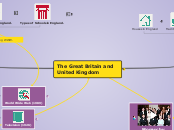av Stuart Maddock 11 år siden
4687
19th Century Public Schools
In the 19th century, British public schools played a pivotal role in the development and dissemination of sports both within the UK and on an international scale. These institutions made sports a compulsory part of the curriculum, which led to organized fixtures and regular practice sessions, significantly improving the skill levels of students.









